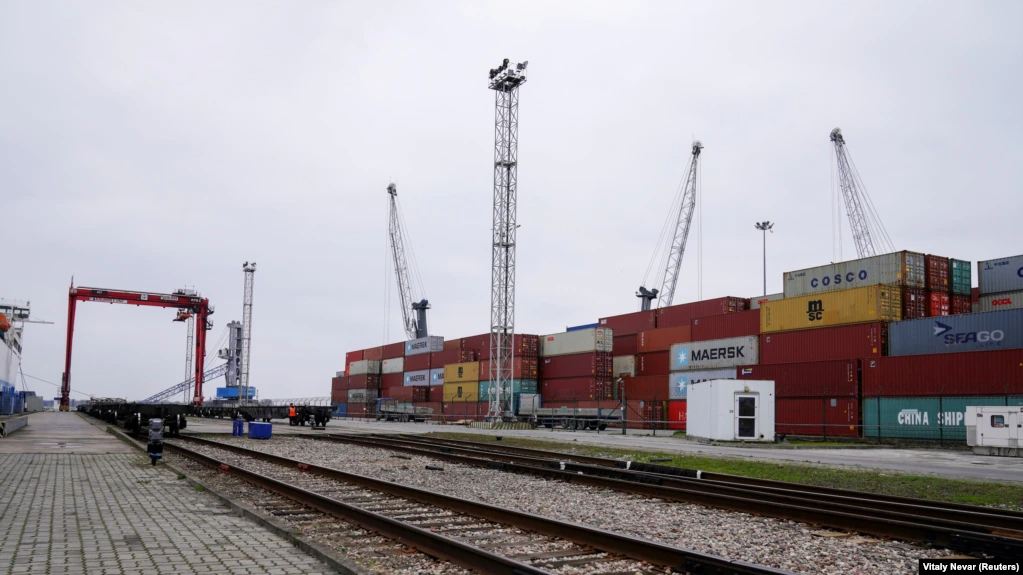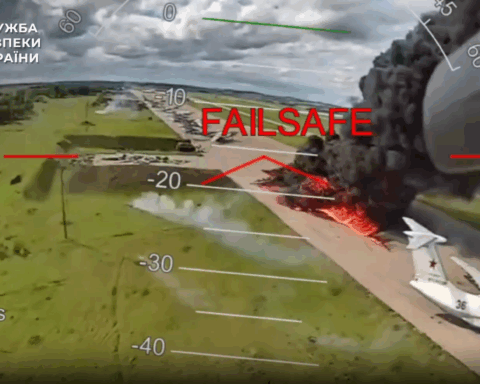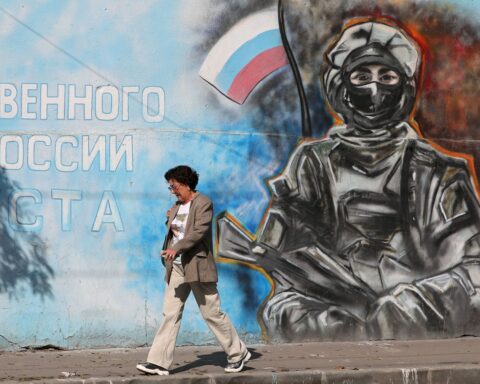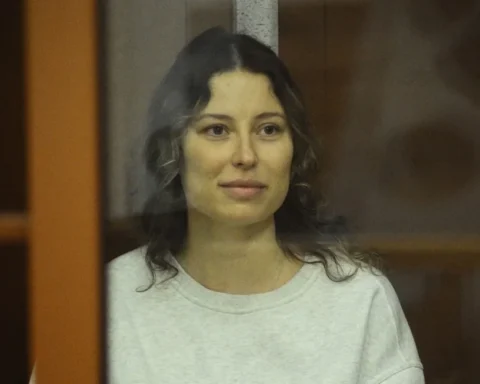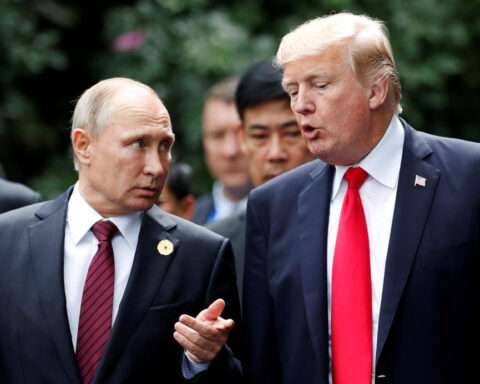Russia has demanded that Vilnius immediately reverse new restrictions on shipments of Russian goods that are subject to EU sanctions through Lithuanian territory to the Russian exclave of Kaliningrad.
The Kremlin called the Lithuanian move “unprecedented” and “illegal,” while the Russian Foreign Ministry said the restriction was “openly hostile” and suggested Moscow would “take actions to protect its national interests.”
Kaliningrad is wedged between Lithuania and Poland, where the Pregolya River feeds into the Baltic Sea. It has about half a million inhabitants.
Lithuanian officials imposed the restrictions beginning on June 20 in an effort to shore up punitive measures that followed Russia’s ongoing invasion of Ukraine on February 24.
“The decision is indeed unprecedented. It violates every possible rule,” said Russian President Vladimir Putin’s spokesman, Dmitry Peskov.
“We understand that it stems from the European Union’s decision to expand sanctions to the transit of goods. We believe that it is illegal, too.”
Western governments warned Moscow of fierce sanctions and other backlash if Russian troops amassed for months near the Ukrainian border invaded their smaller neighbor to the west.
Lithuanian officials have suggested Russia can ship goods by sea to Kaliningrad, Russia’s only ice-free port year-round.
The Baltic states and other former Soviet republics have expressed concerns for years amid signs of an expansionist or revanchist Moscow under former KGB officer Putin and his blend of Russian nationalism and Soviet nostalgia.
The Russian Foreign Ministry said on June 20 that it summoned the Lithuanian charge d’affaires in Moscow to protest what it called “provocative” and “openly hostile” measures.
“If in the near future cargo transit between the Kaliningrad region and the rest of the territory of the Russian Federation through Lithuania is not restored in full, then Russia reserves the right to take actions to protect its national interests,” the ministry said.
The EU’s list of banned Russian goods includes construction materials, coal, metals, and advanced technology.
European officials clarified for Vilnius that the restrictions include goods transiting EU territory bound for a third country.
Anton Alikhanov, the governor of Kaliningrad, said the ban affected around half of the exclave’s imports, many of which are moved by rail across Lithuania.
He has urged Moscow to invoke tit-for-tat measures against Lithuania.


